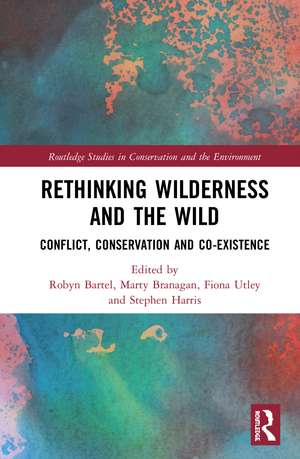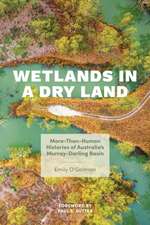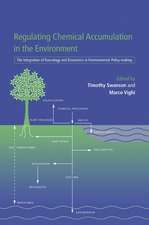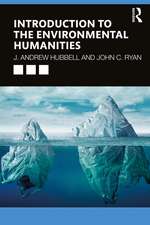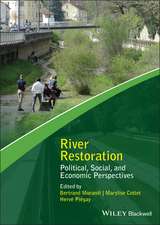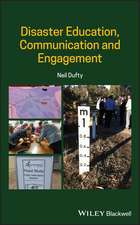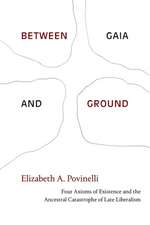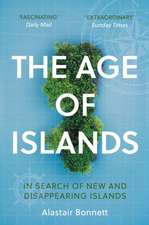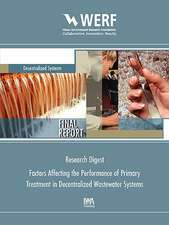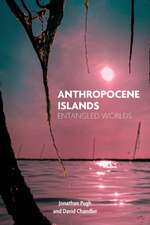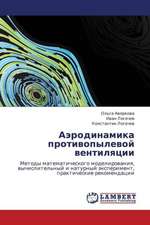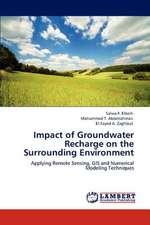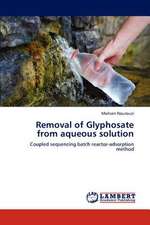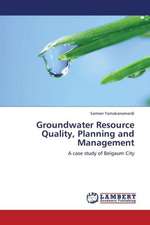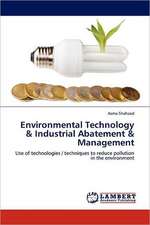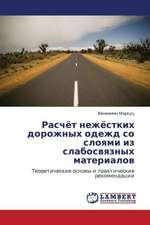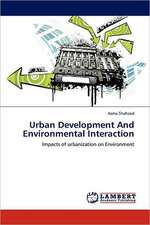Rethinking Wilderness and the Wild: Conflict, Conservation and Co-existence: Routledge Studies in Conservation and the Environment
Editat de Robyn Bartel, Marty Branagan, Fiona Utley, Stephen Harrisen Limba Engleză Hardback – 30 oct 2020
Rethinking Wilderness and the Wild: Conflict, Conservation and Co-existence examines the complexities surrounding the concept of wilderness.
Contemporary wilderness scholarship has tended to fall into two categories: the so-called 'fortress conservation' and 'co-existence' schools of thought. This book, contending that this polarisation has led to a silencing and concealment of alternative perspectives and lines of enquiry, extends beyond these confines and in particular steers away from the dilemmas of paradise or paradox in order to advance an intellectual and policy agenda of plurality and diversity rather than of prescription and definition. Drawing on case studies from Australia, Aoteoroa/New Zealand, the United States and Iceland, and explorations of embodied experience, creative practice, philosophy, and First Nations land management approaches, the assembled chapters examine wilderness ideals, conflicts and human-nature dualities afresh, and examine co-existence and conservation in the Anthropocene in diverse ontological and multidisciplinary ways. By demonstrating a strong commitment to respecting the knowledge and perspectives of Indigenous peoples, this work delivers a more nuanced, ethical and decolonising approach to issues arising from relationships with wilderness. Such a collection is immediately appropriate given the political challenges and social complexities of our time, and the mounting threats to life across the globe. The abiding and uniting logic of the book is to offer a unique and innovative contribution to engender transformations of wilderness scholarship, activism and conservation policy. This text refutes the inherent privileging and exclusionary tactics of dominant modes of enquiry that too often serve to silence non-human and contrary positions. It reveals a multi-faceted and contingent wilderness alive with agency, diversity and possibility.
This book will be of great interest to students and scholars of conservation, environmental and natural resource management, Indigenous studies and environmental policy and planning. It will also be of interest to practitioners, policymakers and NGOs involved in conservation, protected environments and environmental governance.
| Toate formatele și edițiile | Preț | Express |
|---|---|---|
| Paperback (1) | 312.34 lei 3-5 săpt. | +25.99 lei 10-14 zile |
| Taylor & Francis – aug 2022 | 312.34 lei 3-5 săpt. | +25.99 lei 10-14 zile |
| Hardback (1) | 983.38 lei 6-8 săpt. | |
| Taylor & Francis – 30 oct 2020 | 983.38 lei 6-8 săpt. |
Din seria Routledge Studies in Conservation and the Environment
-
 Preț: 294.66 lei
Preț: 294.66 lei - 17%
 Preț: 259.98 lei
Preț: 259.98 lei -
 Preț: 282.61 lei
Preț: 282.61 lei -
 Preț: 258.30 lei
Preț: 258.30 lei -
 Preț: 289.30 lei
Preț: 289.30 lei -
 Preț: 282.80 lei
Preț: 282.80 lei -
 Preț: 312.12 lei
Preț: 312.12 lei -
 Preț: 312.34 lei
Preț: 312.34 lei -
 Preț: 382.18 lei
Preț: 382.18 lei -
 Preț: 355.51 lei
Preț: 355.51 lei -
 Preț: 361.46 lei
Preț: 361.46 lei -
 Preț: 363.55 lei
Preț: 363.55 lei -
 Preț: 365.12 lei
Preț: 365.12 lei - 18%
 Preț: 877.93 lei
Preț: 877.93 lei -
 Preț: 387.61 lei
Preț: 387.61 lei -
 Preț: 383.13 lei
Preț: 383.13 lei -
 Preț: 383.13 lei
Preț: 383.13 lei -
 Preț: 311.41 lei
Preț: 311.41 lei - 18%
 Preț: 987.74 lei
Preț: 987.74 lei -
 Preț: 377.25 lei
Preț: 377.25 lei - 17%
 Preț: 259.98 lei
Preț: 259.98 lei - 18%
 Preț: 987.89 lei
Preț: 987.89 lei - 24%
 Preț: 236.11 lei
Preț: 236.11 lei - 25%
 Preț: 767.47 lei
Preț: 767.47 lei - 17%
 Preț: 190.50 lei
Preț: 190.50 lei - 23%
 Preț: 238.61 lei
Preț: 238.61 lei
Preț: 983.38 lei
Preț vechi: 1199.24 lei
-18% Nou
188.19€ • 196.06$ • 156.48£
Carte tipărită la comandă
Livrare economică 08-22 februarie 25
Specificații
ISBN-10: 0367279851
Pagini: 316
Ilustrații: 2 Line drawings, black and white; 3 Halftones, black and white; 4 Tables, black and white; 5 Illustrations, black and white
Dimensiuni: 156 x 234 x 19 mm
Greutate: 0.45 kg
Ediția:1
Editura: Taylor & Francis
Colecția Routledge
Seria Routledge Studies in Conservation and the Environment
Locul publicării:Oxford, United Kingdom
Cuprins
Notă biografică
Marty Branagan is a Senior Lecturer at the University of New England, Australia. He is the author of Global Warming, Militarism and Nonviolence: The Art of Active Resistance (2013).
Fiona Utley is a Senior Lecturer at the University of New England, Australia. Her research, publications and international conference presentations explore phenomenological perspectives on identity, trauma, and embodiment.
Stephen Harris is a Lecturer at the University of New England, Australia. He is one of the co-editors of Water Policy, Imagination and Innovation: Interdisciplinary Approaches (Routledge, 2018).
Descriere
Rethinking Wilderness and the Wild: Conflict, Conservation and Co-existence examines the complexities surrounding the concept of wilderness.
Contemporary wilderness scholarship has tended to fall into two categories: the so-called 'fortress conservation' and 'co-existence' schools of thought. This book, contending that this polarisation has led to a silencing and concealment of alternative perspectives and lines of enquiry, extends beyond these confines and in particular steers away from the dilemmas of paradise or paradox in order to advance an intellectual and policy agenda of plurality and diversity rather than of prescription and definition. Drawing on case studies from Australia, Aoteoroa/New Zealand, the United States and Iceland, and explorations of embodied experience, creative practice, philosophy, and First Nations land management approaches, the assembled chapters examine wilderness ideals, conflicts and human-nature dualities afresh, and examine co-existence and conservation in the Anthropocene in diverse ontological and multidisciplinary ways. By demonstrating a strong commitment to respecting the knowledge and perspectives of Indigenous peoples, this work delivers a more nuanced, ethical and decolonising approach to issues arising from relationships with wilderness. Such a collection is immediately appropriate given the political challenges and social complexities of our time, and the mounting threats to life across the globe. The abiding and uniting logic of the book is to offer a unique and innovative contribution to engender transformations of wilderness scholarship, activism and conservation policy. This text refutes the inherent privileging and exclusionary tactics of dominant modes of enquiry that too often serve to silence non-human and contrary positions. It reveals a multi-faceted and contingent wilderness alive with agency, diversity and possibility.
This book will be of great interest to students and scholars of conservation, environmental and natural resource management, Indigenous studies and environmental policy and planning. It will also be of interest to practitioners, policymakers and NGOs involved in conservation, protected environments and environmental governance.
